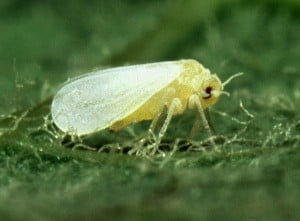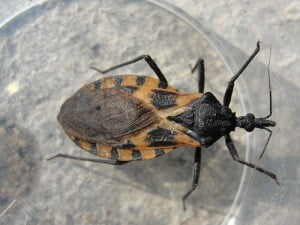If you are a farmer, you will know that pests are just about the biggest enemy to your crops and livelihood. These little insects, often no bigger than a needle pin, have the ability to destroy every single one of your crops. What’s worse, they are resistant to many chemical pesticides. Enter EdenShield – an innovative Israeli company that is working on an odor-masking product that tricks pests into believing your crops simply aren’t there.
EdenShield is designed to trick pests such as thrips, whiteflies, and tomato leafminers. Edensheild’s formula is applied to greenhouse screens where it masks the odor of the crops inside and lowers insect attraction. The all natural, allegedly nontoxic bug repellent conceals the smell of plants and flowers, and possibly even people. It’s like putting a “nose clip” on bugs, EdenShield says.
Related articles
The natural extract comes from a bush that grows in Israel, the Sinai desert and Jordan and is already being tested in Israeli greenhouses. These bushes, kept secret by EdenShield, have evolved to survive in desert environments, so they eventually develop compounds that help them exist and survive in these harsh environments. EdenShield’s founder and CEO Yaniv Kitron, a chemical engineer, tells NoCamels: “This particular bush has been used for centuries by the Bedouin population in tea as a way to counter inflammation. So there are no safety hazards in using our product. Also it is not applied directly onto the plant.”
A mask, not a repellant
Kitron is still analyzing the plant’s chemical makeup in order to determine exactly which molecule in the bush produces the odor-destroying effect. The company’s product is intended for use on greenhouse nets, which are generally not completely sealed, as the crops need oxygen. This means that small pests are able to get in through the holes.
Kitron explains what lead to the creation of EdenShield: “At the time there were a lot of problems with chives and other herbs and countries returned the produce that was exported from Israel. The ministry of agriculture called out for help with exports going out, as the market value was declining unexpectedly. That was the motivation behind the product. The issue was that the insects attack such a big variety of plants, including vegetables and orchards, and viruses carried by thrips and whiteflies terminate the plant, or cause the fruit that comes out to be defective.”
Entire crops lost
Sign up for our free weekly newsletter
SubscribeKitron claims that the problem is so severe, that pests are sometimes capable of causing a yield loss of 100 percent. According to him, pests quickly become resistant to pesticide, to the point that “it’s like pouring water on them,” he says.
Conventional chemical pesticides are often ineffective, Kitron says, as pests quickly develop resistance. Increasingly, the market is turning to natural solutions. However, these also suffer from major drawbacks, according to Kitron. “Currently available biopesticides (derived from plants or microorganisms) either cause resistance development or are short acting. Controlling pests with natural enemies (insects that prey on them) involves regulatory hurdles, is complicated, and is not sufficiently efficient when pest populations increase rapidly.” As a result, he adds, “there are no good solutions available for conventional or organic growers.”
EdenShield says that they are focused on masking entire greenhouses and not individual plants, because the regulatory process for plant-applied chemicals is long and complicated – even for natural substances. Eventually, Kitron estimates that the extract will be refined and will be deemed safe enough to spray directly onto plants.
Protecting plants – and people
In addition to the utilization of their product in the field of agriculture, EdenShield is also testing the possibility of using the product for humanitarian purposes. It might be able to protect people against against malaria-carrying mosquitoes or kissing bugs in third world countries, Kitron says. The kissing bug, sometimes called “the new AIDS” of the developing world, transmits chagas – a parasite that causes severe organ damage.
Initially funded by Israel’s Chief Scientist’s Office and the Mofet Venture Accelerator in Efrat, where EdenShield is based, Kitron currently seeks $1.7 million to take his research further.
The company intends to collaborate with greenhouse screen companies, and will license its product to pesticide companies. “We are looking to partner with a [strategic partner], a large chemical company, so that we can raise the funds that we need to be ready to begin sales in 2014,” Kitron says.
Photo by: World Bank Photo Collection
Related posts

Resilient And Nutritious New Plant-Based Milk Aims To Make A Splash

Chocolate From Cultivated Cocoa Comes Without Environmental Toll

Plastic Fantastic: Startup Takes PVC Back To Its Crude Oil Roots






Facebook comments